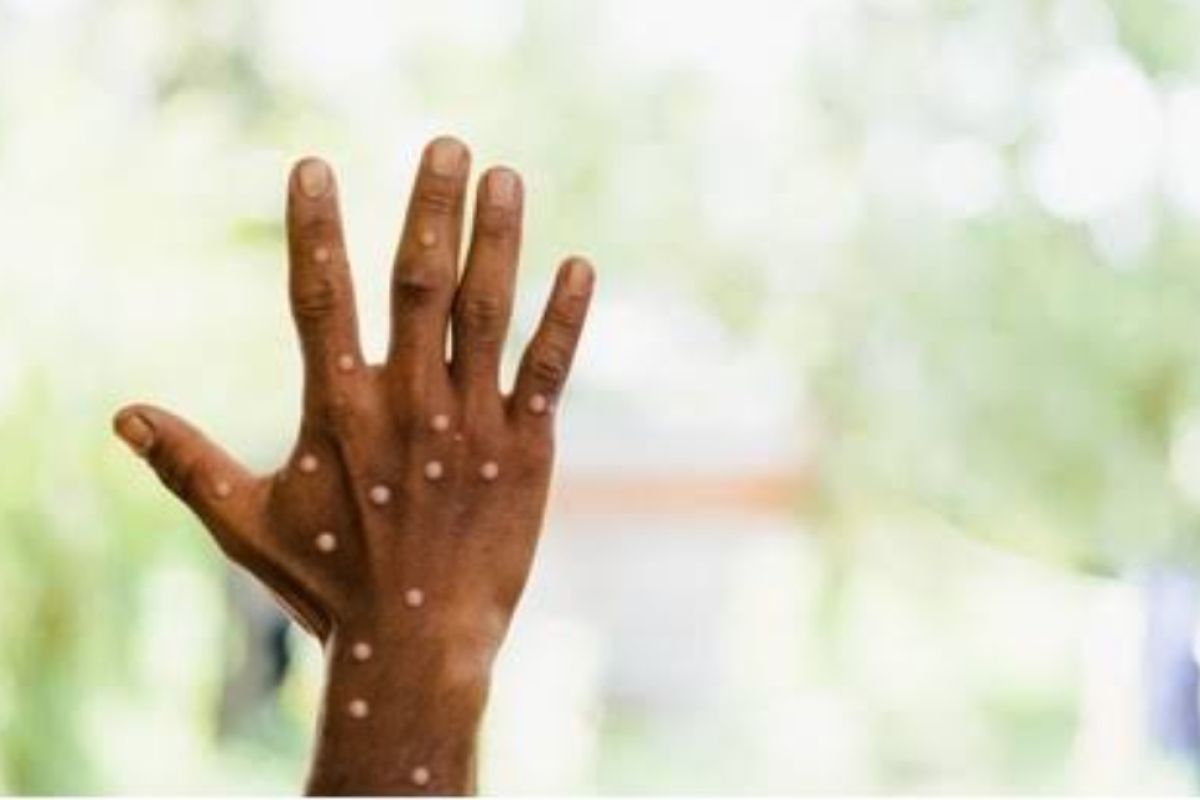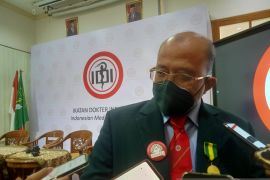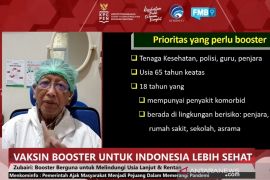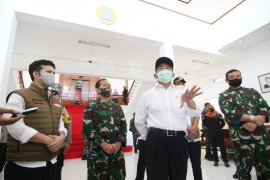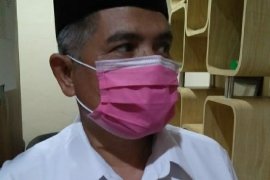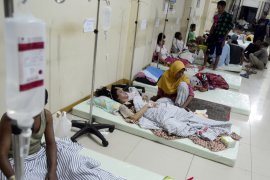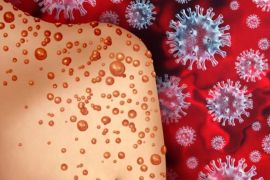Monkeypox is zoonotic, with the main transmission being through human contact with blood, bodily fluids, or lesions on the mucosa or skin of infected animalsJakarta (ANTARA) - The Indonesian Doctors Association (IDI) has asked all doctors to remain alert for the symptoms of monkeypox in patients, following the trend in global cases that has prompted an advisory for a potential monkeypox epidemic.
"Monkeypox is zoonotic, with the main transmission being through human contact with blood, bodily fluids, or lesions on the mucosa or skin of infected animals," Adityo Susilo from the Indonesian Association of Internal Medicine Specialists (PAPDI) said in a statement on Wednesday.
The World Health Organization (WHO) has declared a state of emergency for monkeypox. Although it has not been detected in Indonesia, monkeypox cases have been identified in Singapore.
Monkeypox is a viral infectious disease that is zoonotic and rare. Since it was first identified, several cases of human infection have been reported sporadically in Central and West Africa, generally in locations close to tropical rainforest areas.
Related news: Government readies facilities for early detection of monkeypox
"This monkeypox belongs to the orthopoxvirus genus, such as the variola virus that causes smallpox, and was declared eradicated worldwide by the WHO in 1980," Susilo said.
Based on WHO data, monkeypox was initially identified in 1970 in Zaire and has since been reported to have spread sporadically in ten countries in Central and West Africa. In 2017, Nigeria experienced the most extraordinary event, reporting an estimated 40 confirmed infections.
Since May 2022, monkeypox has become a global public health concern as it has been detected in non-endemic countries.
The WHO has received reports of monkeypox cases originating from non-endemic countries since May 13, and so far, the disease has spread to a total of 75 countries globally.
As of July 25, as many as 18,905 cases of monkeypox have been confirmed worldwide, with 17,852 cases detected in countries with no previous case history.
The United States has reported 3,846 cases of monkeypox. In ASEAN, Singapore has reported 9 confirmed cases and Thailand has reported 1 confirmed case.
Related news: Smallpox vaccine can protect against monkeypox: health minister
In Africa, cases of monkeypox in humans have been associated with a history of contact with infected animals, such as monkeys, squirrels, mice, and other rodents. Eating infected animal meat that is not cooked thoroughly has also been identified as another method of transmission.
"As for human-to-human transmission, it is suspected that it can occur as a result of close contact with infected patients directly through exposure to infected respiratory secretions, direct contact with a patient’s skin lesions, or contact with objects that have been contaminated by the patient's bodily fluids," said Susilo.
Vertical transmission from mother to fetus through the placenta (congenital monkeypox infection) can also occur, he added.
The incubation period for monkeypox is about 5–21 days, and 6–16 days on average. After the incubation phase, a patient experiences clinical symptoms such as high fever with severe headache, lymphadenopathy, back pain, muscle aches, and prominent weakness.
One-three days after the fever appears, the patient finds spots on the skin, starting from the face and spreading throughout the body.
These spots are mainly found on the face, the palms of hands, and the soles of feet. Over time, the spots turn into maculopapular skin lesions, vesicles, and pustules, which, in ten days, turn into scabs.
Related news: Nine suspected patients test negative for monkeypox: ministry
Susilo, who is also the central executive of the Indonesian Association of Tropical Medicine and Infectious Diseases, said that until now, there is no specific treatment for monkeypox.
However, vaccination against smallpox caused by the variola virus detected in 1980 could provide 85 percent effective protection against monkeypox.
With the discovery of the monkeypox cases in Singapore, people also need to remain alert to the possibility of the virus entering Indonesia, he said.
This is especially important for populations that are at risk of fatality due to monkeypox, such as children, pregnant women, the elderly, and people with low immunity (immunosuppression), he said.
"Reflecting on the COVID-19 pandemic that has hit, we must always be optimistic that by working together the global community will be able to move quickly to respond to this situation," he added.
Related news: Ministry activates surveillance to prevent monkeypox spread
Susilo said that avoiding contact with suspected patients is key to the most effective prevention. This needs to be followed by surveillance and early detection of active cases through quarantine to prevent wider spread.
In the meantime, head of PB IDI's Infectious Disease Control Study, Agus Dwi Susanto, said that building a good understanding of monkeypox and early alertness against extraordinary events are key prevention measures.
He also asked health workers, both doctors and nurses, who detect symptoms of monkeypox in patients to immediately follow up with a polymerase chain reaction (PCR) test.
The monkeypox virus examination is meant to detect the DNA of the virus and then report it to the local Health Office for immediate surveillance and further action.
Related news: Tangerang intensifies surveillance to prevent monkeypox transmission
Related news: DPR urges central government to anticipate monkeypox transmission
Translator: Katriana
Editor: Fardah Assegaf
Copyright © ANTARA 2022
